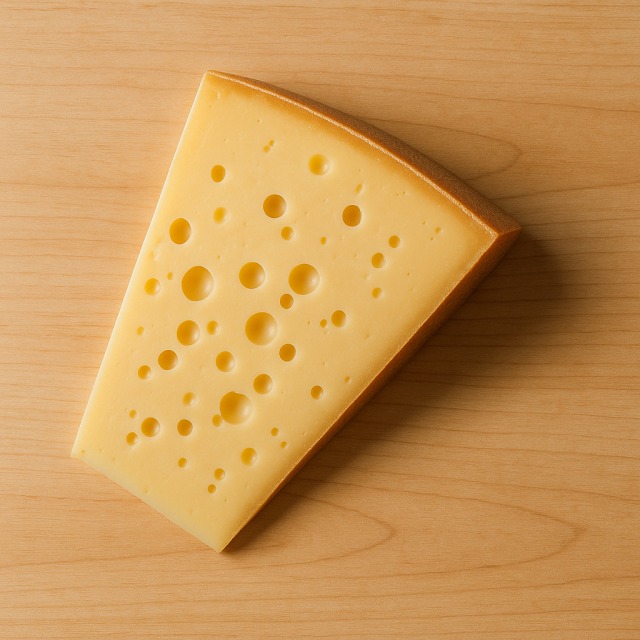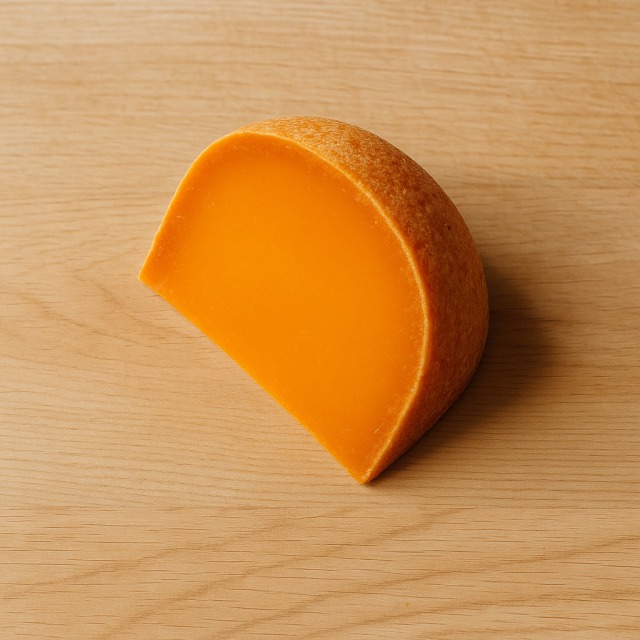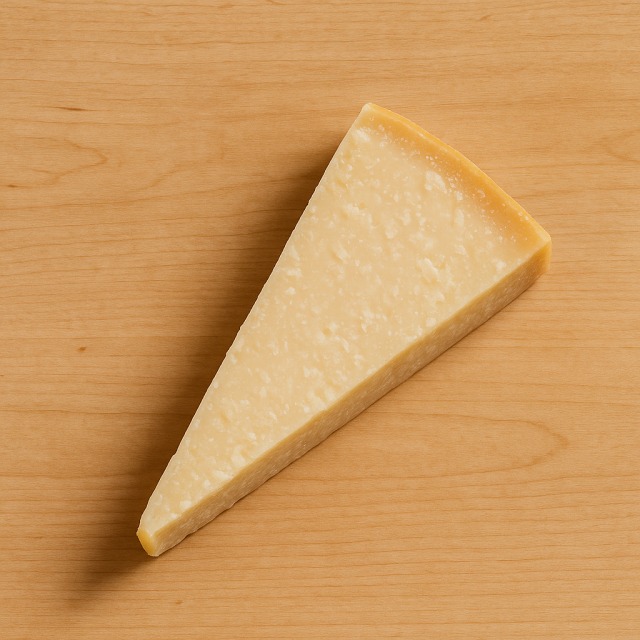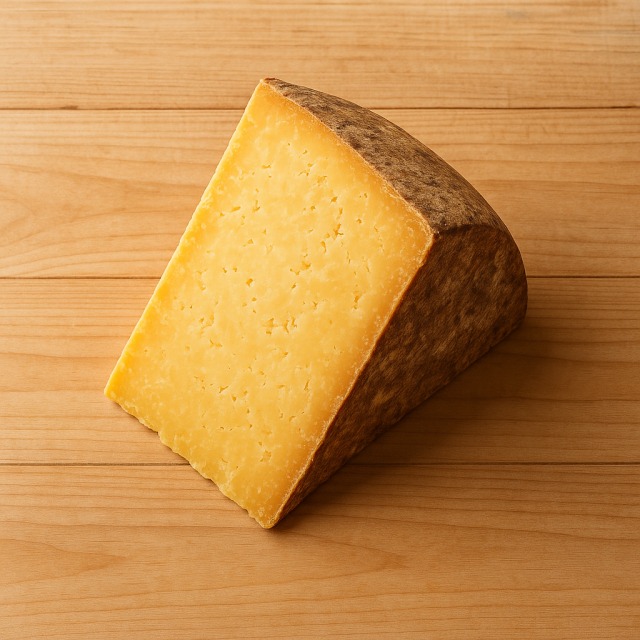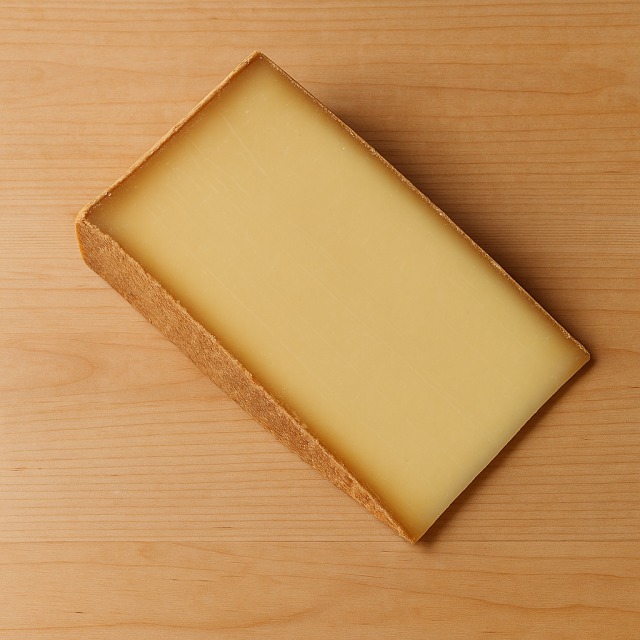Calorie Chart / Cheeses / Emmental
How Many Calories Are in Emmental?
Calculation of the nutritional value & Recommended Dietary Intake of emmental
For g and a calorie requirement of kcal
| Calories 151 kcal | Proteins 12 g | Lipids 12 g | Carbohydrates 0 g |
| 8% | 16% | 18% | 0% |
Health benefits of emmental
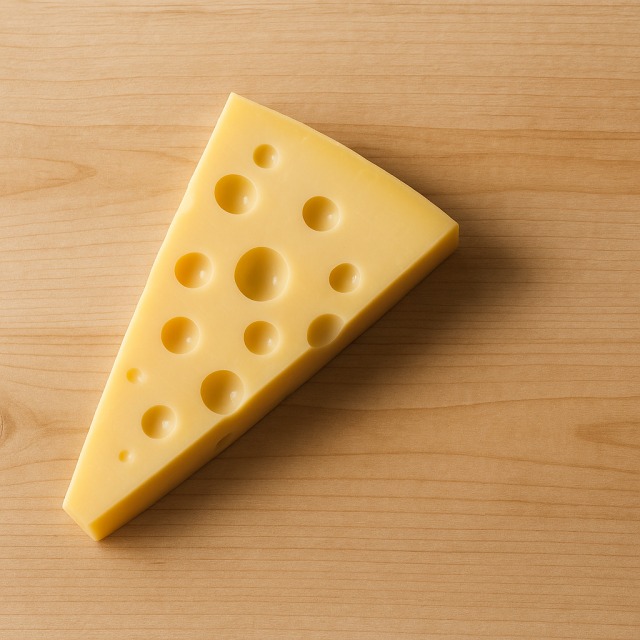
Emmental - 100g
Calories 378 kcal
Proteins 29.5 g
Lipids 29 g
Carbohydrates 0 g
Emmental is considered a high-calorie cheese because its generous 378 kcal per 100 g mainly comes from milk fat and dense proteins. Despite the calories, it provides valuable nutrients: calcium for bone health (around 800 mg/100 g), phosphorus that works with calcium, and vitamin B12, which contributes to normal energy metabolism.
The cheese also supplies vitamin A (retinol), important for vision, and vitamin B2 (riboflavin). Thanks to its long curing process, emmental is naturally rich in conjugated linoleic acid (CLA), a fatty acid sometimes believed to help control body fat, although evidence is still debated. Like Gruyère or Appenzeller, its characteristic holes are produced by propionic bacteria that release CO₂ during maturation – a detail often cited in food science anecdotes.
Because it is virtually carb-free (0 g of carbohydrates) and contains 29.5 g of proteins, athletes following low-carb or ketogenic plans often integrate emmental to raise protein intake without adding sugars, while accepting the calorie load. Moderation remains key, as the concentrated calories accumulate quickly in a balanced menu.
Historically, emmental originated in Switzerland's Emme Valley in the 13th century and spread across Europe. Today, French "emmental" differs slightly from Swiss varieties but maintains the same reputation: pronounced nutty flavour, firm texture, and, of course, calories worth monitoring.
Tips for incorporating emmental into a balanced diet
Its melting qualities make emmental the star of many dishes, but remember the calories when planning portions. Prefer a thin slice inside a homemade croque-monsieur paired with a green salad rather than piling on extra cheese; you will still enjoy the flavour while reducing calories per serving.
For a lighter dinner, grate 20 g of emmental over steamed broccoli or zucchini. The vegetables add volume with minimal calories, balancing the cheese's calories and fat. You can also sprinkle a spoonful on a bowl of hot vegetable soup for creaminess without heavy cream.
If you crave comfort food, swap part of the cheese in a quiche Lorraine with emmental and portion-control the slice. Combining with a side of green beans keeps total calories manageable. In pasta bakes, mixing emmental with sharper Parmigiano lets you use less overall cheese yet keeps the flavour, reducing calorie density.
Snack idea: roll a strip of emmental around sticks of apple or pear. The fresh fruit fibre helps with satiation and cuts through the fat while adding minimal calories compared with larger cheese cubes.
Frequently Asked Questions
- How many calories are in emmental?
- Emmental provides 378 kcal per 100 g.
- Is emmental more caloric than mozzarella?
- Yes, mozzarella averages about 250 kcal/100 g, whereas emmental reaches 378 kcal, so its calories are significantly higher.
- Does melting emmental change its calorie content?
- No. Heating only changes texture; the calories remain identical unless you add butter or other ingredients.
- Can I include emmental in a low-carb diet without exceeding calories?
- You can, because it has 0 g carbs, but monitor quantity: 30 g already delivers roughly 113 kcal.
- Is the calorie-to-protein ratio good for muscle gain?
- At 29.5 g of protein for 378 kcal, emmental supplies about 0.08 g of protein per kcal, which is acceptable. However, leaner options like chicken breast provide more protein with fewer calories.
- How much emmental should I eat to stay under 150 kcal?
- About 40 g, because 40 g × 3.78 kcal ≈ 151 kcal.
Similar foods
Information provided by Calorie Menu may contain inaccuracies or errors. It cannot, under any circumstances, substitute medical advice or medication.
